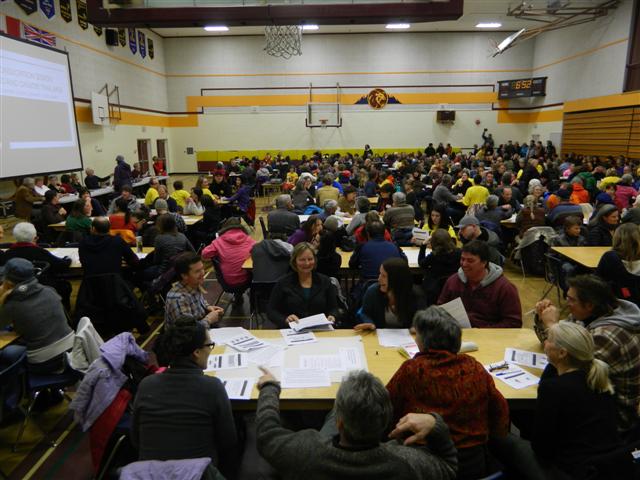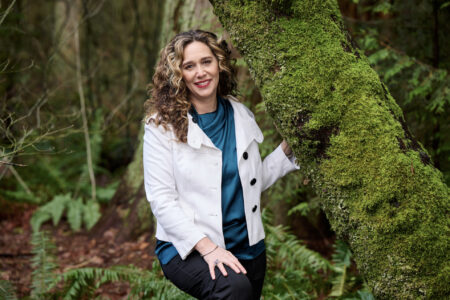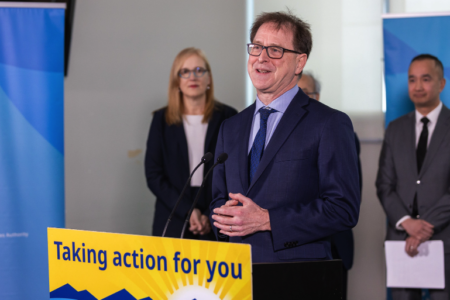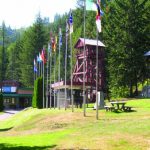NOL encourages a tax increase to fund a K-12 deal with SD20
Editor’s Note: This article has been modified from its original form to reflect two corrections: 1) the NOL manager is Aerin Guy, and 2) anonymous surveys were included in the analysis.
The Neighbourhoods of Learning Committee (NOL) told council on Monday evening that “time is running short” for Rossland and School District No. 20 (SD20) to negotiate a deal to keep K-12 at the community’s secondary school.
NOL Manager Aerin Guy presented data from a recent survey of Rossland households that shows the majority of residents are willing to pay higher taxes to maintain K-12, but with important nuances the survey carefully identified.
Although a majority of households were willing to pay $55 more in taxes each year for both an SD20 deal or for a school under a new “municipal school district” (MSD)—an entity Guy admits is without a legal precedent, but remains a possibility to aim for in the longer term—respondents only had an appetite to fund SD20 for three to five years as a “bridging strategy” for more sustainable long term options. The majority, however, were willing to pay more for a K-12 MSD “in perpetuity,” and only a minority were willing to pay more taxes for an “independent school” in either the short or long term.
Some 556 people responded online and 67 responded on paper, but the data was “cleaned” to limit it to one response per household. Consequently, the analysis included 480 households out of nearly 1300 households in Rossland. Some 91 per cent of respondents were taxpayers, 84 per cent were residents, and 76 per cent were both.
About 49% of respondents had school-age children. Support for tax increases was highest among this demographic, up to 69% support for a K-12 MSD, but support was also high among those without children. Guy noted numerous comments from grandparents in support of a taxation increase.
Approximately 30 per cent were opposed outright to the idea of raising municipal taxes to keep K-12 in the community. Guy said comments left by some 95 of these households ranged from concerns that taxes were already too high, to opinions that older students were better off at J.L. Crowe in Trail. Some said they recognized the value of K-12 in Rossland, but preferred to take the province to task for its education budget rather than burden the municipality and so “play into the hand” of government.
About 136 people left comments in favour of taxation to support K-12 education, typically noting the importance of K-12 to the community’s viability and sustainability.
Smaller taxation increases were more likely to be supported. For example, more than 52 per cent were willing to pay $55 per year more in household taxes to keep K-12, whether in a deal with SD20 or as an MSD, but more than 65 per cent were willing to pay $35 per year.
Coun. Jody Blomme asked if the NOL had investigated “alternative ways of dealing with the situation,” such as the Blueberry Creek School in Castlegar, and if the NOL could provide these case studies to council to aid their decision. Guy responded that several options, including the Blueberry Creek and Lake Cowichan models, were being “floated around” in an NOL working group.
Another NOL working group is investigating the possibility of an MSD. “There’s no current legal framework for a [municipal school district],” Guy said, “but that doesn’t mean it can’t happen. It’s just a longer process.”
In the last decade, more than 180 schools have closed in BC, so Guy figures the time is ripe to pursue alternatives.
Coun. Kathy Wallace was concerned by the “short time frame for people to get surveys in”—the survey opened online on March 4, was in people’s mailboxes on March 5, and had closed by March 10—and Wallace also asked about some 20 surveys that were handed into City Hall.
Guy said the 20 surveys at City Hall had not been included, but the analyst, Jennifer Ellis, had said their inclusion “wouldn’t really affect the numbers,” or only by a “few tenths of a percentage point.” Guy said the strong response—more than one-third of households—gave the NOL confidence in the generality of these results.
Coun. Kathy Moore noted later in the evening that the city can’t legally borrow money for education, but only to build facilities. “We have to build [education] into the budget and tax for the same year,” she said. “There’s support in the community, but there a lot more questions we need to talk about. When are we going to talk about it? There’s a timeline and time’s moving.”
Mayor Greg Granstrom replied that city staff to SD20 staff meetings are happening, and a city staff report will come back to council soon based on the NOL’s presentation.
























